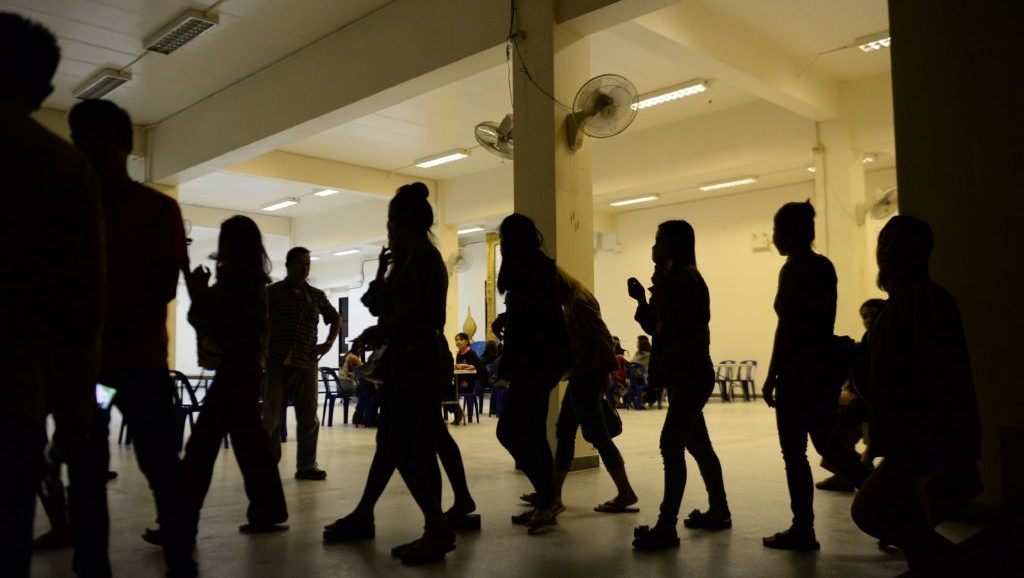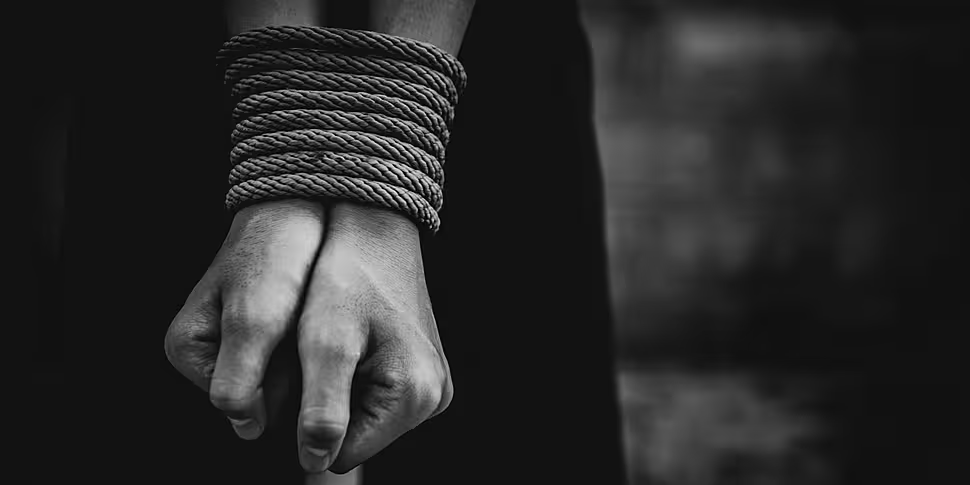Between 2021 and 2023, 140 people were discovered to have been trafficked into Ireland, according to a UN report.
The UN Office on Drugs and Crime's latest global report also showed that of these 140 trafficking victims, 77 were brought to Ireland for sexual exploitation.
A further 50 were exploited for forced labour, and at least one person was brought to the country for the illegal removal of their organs.
According to Mecpaths, an NGO that works to increase awareness about child trafficking, these official statistics do not represent the true reality of the situation.
 A group of foreign women rounded up by police in Thailand during a campaign against prostitution and human trafficking. November 9, 2018.(Photo by Madaree TOHLALA / AFP)
A group of foreign women rounded up by police in Thailand during a campaign against prostitution and human trafficking. November 9, 2018.(Photo by Madaree TOHLALA / AFP)Mecpaths spokesperson Anna Mara told Moncrieff that many victims go undetected, as frontline professionals lack the education to recognise the signs of trafficking.
“Sometimes when we’re conducting our awareness raising workshops across the country, I will often lead with a question of what people assume a victim of trafficking to look like,” she said.
“Very often the reply will be a picture of maybe a young girl who’s bound up in chains and kept in a room of a dilapidated building or house – and whilst that can be the profile of a victim of trafficking, it’s not necessarily the profile.
“So, we know that there are victims of trafficking living within our own cities, communities and villages across this country.
“They might not appear bound in those physical chains, but they are still very much controlled by their traffickers and are being trafficked for some type of exploitation.”
Children in State care
Ms Mara said children under State care can be particularly vulnerable to organised trafficking groups.
“There was a report that was published by the Sexual Exploitation Research and Policy Institute, they’re an independent research body looking at commercialised sexual exploitation in this country,” she said.
“They issued and published a very, very concerning report last year, and the findings of that report detailed the fact that children who are in the care of the State currently and who are being accommodated in residential care centres or special emergency arrangements – the likes of hotels and B&B’s - are being targeted by organised groups of men.
“These children, who are exceptionally vulnerable and who are in the care of the State, are being targeted and picked up in taxis and driven across the country and checked into various different hotels for the purpose of sexual exploitation.”
According to Ms Mara, the demand for victims of organ trafficking is increasing year on year due to the limited supply of legal organ donations.









